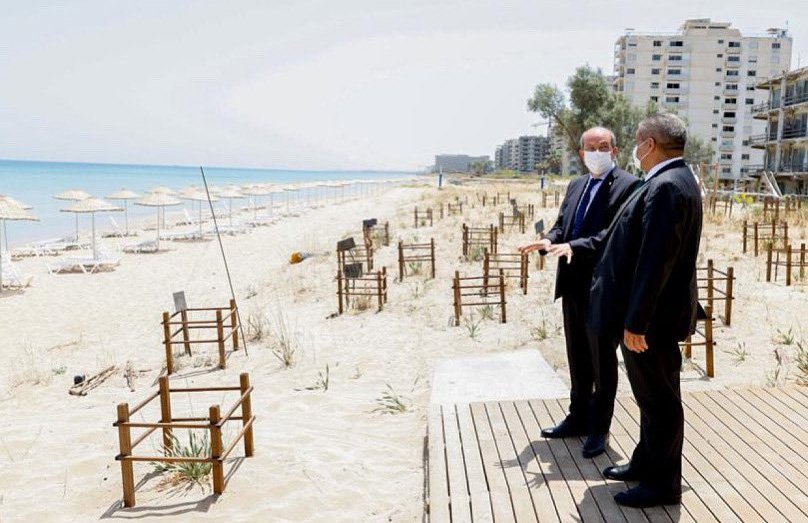French Foreign Affairs Minister Jean-Yves Le Drian expressed support for Cyprus on Wednesday, after a move by Turkish Cypriot authorities to partially reopen an abandoned town for potential resettlement, which had drawn a strong rebuke from rival Greek Cypriots.
Le Drian said he discussed the matter on July 20 with his Cypriot counterpart and would be raising the topic at the United Nations.
The town in question, Varosha, has been deserted since a 1974 war split the island. Greek Cypriots fear Turkey intends to appropriate it. Cypriot President Nicos Anastasiades described the move as “illegal and unacceptable”.
Israel also expressed deep concern over unilateral Turkish actions and statements regarding Varosha, and has reiterated its solidarity and full support to Cyprus.
A press release, posted on Twitter by the Israeli Foreign Ministry spokesperson, said that the foreign minister Yair Lapid reiterated that support and solidarity directly to Cypriot Foreign Minister, Nikos Christodoulides.
“Israel is following with deep concern recent unilateral Turkish actions and statements regarding the status of Varosha” and “reiterates its solidarity and full support for Cyprus”, the press release noted.
The US, EU and UK all condemned the move late Tuesday. A statement by US Secretary of State Antoy Blinken said the move was clearly inconsistent with UN Security Council Resolutions 550 and 789, which explicitly call for Varosha to be administered by the United Nations.
“The United States is working with like-minded partners to refer this concerning situation to the UN Security Council and will urge a strong response,” Blinken said.
“We underscore the importance of avoiding provocative unilateral actions that increase tensions on the island and hinder efforts to resume Cyprus settlement talks in accordance with UN Security Council resolutions. We remain supportive of a Cypriot-led comprehensive settlement to reunify the island as a bizonal, bicommunal federation to benefit all Cypriots and the wider region”.
Similar sentiments were expressed by the EU and the UK.
Moscow has not issued any statements on the issue.






Click here to change your cookie preferences